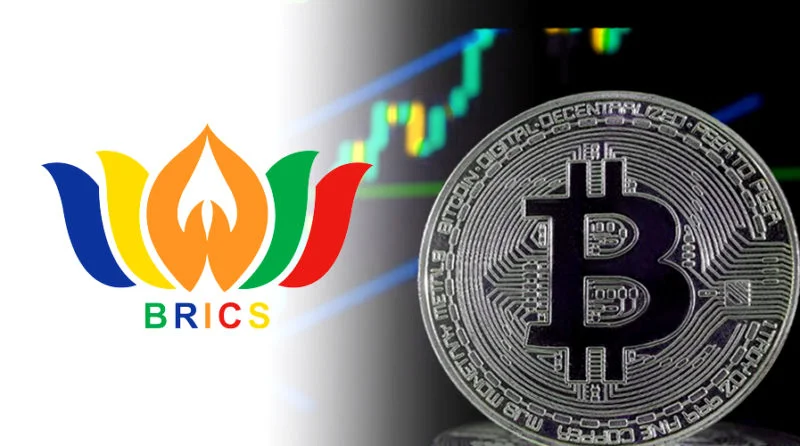BRICS: Bitcoin-Friendly Country Could Join the Alliance
03.08.2024 21:00 2 min. read Alexander Stefanov
The BRICS alliance is increasingly attracting new members from around the world who are willing to join the bloc and abandon the use of the US dollar for trade.
El Salvador is reportedly among the countries considering joining the BRICS alliance in 2024. Known for being the first country to legalize Bitcoin, El Salvador holds approximately $400 million worth of BTC in its reserves.
Meanwhile, Russia, a BRICS member, has been facing US sanctions for nearly two years and has been looking for ways to trade without the US dollar.
The sanctions have created opportunities for El Salvador to make new agreements with Russia, a BRICS member. Russia needs mutual understanding with El Salvador to support the country’s economy without relying on the U.S. dollar for trade.
According to a Twitter source, El Salvador has confirmed its interest in joining the BRICS alliance in 2024. The country is also exploring the possibility of using cryptocurrencies to trade with Russia
“El Salvador proposes to use cryptocurrency in trade operations with the Russian Federation,” said Alexander Ilyukhin, head of the Russian Embassy’s branch in El Salvador.
If Russia agrees to use Bitcoin and other cryptocurrencies to trade with El Salvador, it could set a precedent that other countries could follow.
If El Salvador becomes a member of BRICS, the country could push for Bitcoin transactions with other members. This change could threaten the supply and demand dynamics of the US dollar on the world stage.
-
1
Here’s Why Bitcoin Could Be Gearing Up for Its Next Move Despite the Pullback
09.06.2025 8:00 2 min. read -
2
BlackRock and Fidelity Pour Over $500M Into Bitcoin in One Day
25.06.2025 21:00 1 min. read -
3
Blockchain Group Bets Big on Bitcoin With Bold €300M Equity Deal
09.06.2025 22:00 2 min. read -
4
Bitcoin to Track Global Economy, Not Dollars, Says Crypto Expert
09.06.2025 18:00 2 min. read -
5
BlackRock’s Bitcoin ETF Breaks Into Top 15 Most Traded ETFs of 2025
12.06.2025 18:00 2 min. read
What Brian Armstrong’s New Stats Reveal About Institutional Crypto Growth
Coinbase CEO Brian Armstrong has spotlighted a significant acceleration in institutional crypto adoption, driven largely by the surging popularity of exchange-traded funds and increased use of Coinbase Prime among major corporations.
What Will Happen With the Stock Market if Trump Reshapes the Fed?
Jefferies chief market strategist David Zervos believes an upcoming power shift at the Federal Reserve could benefit U.S. equity markets.
U.S. Bank Advises Clients to Drop These Cryptocurrencies
Anchorage Digital, a federally chartered crypto custody bank, is urging its institutional clients to move away from major stablecoins like USDC, Agora USD (AUSD), and Usual USD (USD0), recommending instead a shift to the Global Dollar (USDG) — a stablecoin issued by Paxos and backed by a consortium that includes Anchorage itself.
Vitalik Buterin Warns Digital ID Projects Could End Pseudonymity
Ethereum co-founder Vitalik Buterin has voiced concerns over the rise of zero-knowledge (ZK) digital identity projects, specifically warning that systems like World — formerly Worldcoin and backed by OpenAI’s Sam Altman — could undermine pseudonymity in the digital world.
-
1
Here’s Why Bitcoin Could Be Gearing Up for Its Next Move Despite the Pullback
09.06.2025 8:00 2 min. read -
2
BlackRock and Fidelity Pour Over $500M Into Bitcoin in One Day
25.06.2025 21:00 1 min. read -
3
Blockchain Group Bets Big on Bitcoin With Bold €300M Equity Deal
09.06.2025 22:00 2 min. read -
4
Bitcoin to Track Global Economy, Not Dollars, Says Crypto Expert
09.06.2025 18:00 2 min. read -
5
BlackRock’s Bitcoin ETF Breaks Into Top 15 Most Traded ETFs of 2025
12.06.2025 18:00 2 min. read


